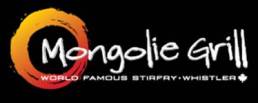BC’ers voted against the HST last week (Aug 26, 2011) in favor of re-instating a double tax system. According to many press articles, it appears that those who voted to keep the HST were better educated, more prosperous, and self employed business people. Did the others not get the big picture? Or did they vote against the HST because a haircut or MacDonald’s tab went up a little?
The “yes” side (yes to get rid of the HST and put back the old GST + PST) won the debate. But we all lose because of this bad outcome. So, why did so many vote “yes”? I think it was due to anger, ignorance, mistrust or myopia: Anger about the way in which it was introduced, ignorance about how the old PST as a regressive tax-upon-tax, mistrust in not believing that the reduction from 10% to 12% would mitigate any negative impact and finally myopia – the shortsighted view that a few things would become more expensive.
The whole issue and debate – including the confusing ballot which asked you to vote “Yes” to get rid of the HST – was poorly handled. Too many voters voted emotionally or because they were negatively impacted in the short term. Does this set the stage for more referendums in the future? I believe that those who axed the HST (a 10% tax) in favour of a more complex two-tax system (7% PST & 5% GST), of which the PST is a regressive tax, will pay (actually, we all will) for this decision in the form of higher prices on most items we buy.
If some vendors (including BC’s own Liquor Stores) had passed on the cost savings due to the HST and/or if some of the items that were taxable under HST but were previously exempt from the PST portion were made exempt, we wouldn’t have had this unfortunate negative backlash. In other words, rather than going backwards, I believe we should have fine-tuned the HST rather than reject it entirely.
Here are my pre-vote arguments:
It’s disturbing how quick people are to get behind an issue and sign a petition before doing their homework. The raging campaign in B.C. against the HST has elevated former premier, Bill Vander Zalm to cult-hero status. How myopic! Just posted: A Vancouver Sun (26May2011) story about a great YouTube video done by a UBC Student really nails it!
Most people look only at their own immediate pain, i.e. they now pay an extra 7% on a few (only a few) things that they previously had to pay no tax on. They actually were paying some of the tax all along because producers passed it on – it just didn’t have the visibility. This is just like the hidden Manufacturing tax (which was replaced by the GST) we had in the 1970’s – which made Canadian producers less competitive than they are today.
A value-added tax eliminates any double-taxation. For example, when paying the old GST, you actually paid a tax on items that already had some PST and other taxes hidden in the cost of those items.
There’s an excellent article in the Globe & Mail’s June 18, 2010 edition by Derek DeCloet titled, “In BC’s HST debate, passion trumps common sense”. DeCloet nails it when he says: “The HST’s critics, an alliance of knee-jerk populists, political opportunists and the financially clueless, ought to go jump into the Georgia Strait. Better yet, they should really take a basic economics course”.
The HST is a true value-added tax. It means that the producers of goods and services are no longer burdened by higher investment and operating costs and can be more globally competitive. Instead, it’s the consumers who’ll pay the tax. And, that’s why its unpopular – not that they are actually paying more tax (the old PST and GST added up to 12% in BC – same as the HST) – it’s just that some things, notably services, are now fully taxed at 12% whereas they were previously PST-exempt and taxed at only 5%.
On a recent CTV newscast, four entrepreneurs were asked what they thought of the HST. Two were against it – an acupuncture guy and an art gallery owner. Two were for it – a manufacturer and a producer. Those that provide previously untaxed services are clearly unhappy because the end-price that their customers now pay is higher. However, their costs should be lower and they could drop their prices a little. There were lots of hidden costs and people never complained before because they weren’t aware of them.
The government has done a lousy job of explaining the benefits of the HST system. An MLA recently asked me what I would do to prevent Vander Zalm’s lemmings from falling into the sea. I suggested that someone more popular than Vander Zalm (people have short memories) take up the cause. Perhaps a rock star, athlete or main-stream opinion leader getting behind it would help. I suspect that our champions of industry would all speak in favour of the HST but alas, they’d come across as self-serving or politically connected. (And – it shouldn’t be guys like me writing articles like this!)
One big end-consumer benefit – at least to some – is the fact the liquor is cheaper now. In a restaurant, you used to pay a PST of 10% plus a GST of 5%. Now it’s just 12%. The same is true for liquor stores. Government owned liquor stores kept the end-prices the same by raising their before-tax prices. Why didn’t consumers of booze grumble about that? Not passing the savings on to consumers doesn’t do anything to help the government’s cause. It’s just plain stupid. Apparently private liquor stores did pass on the savings.
There are lots of rebates and exemptions: for example, on some high-ticket items like real estate, the BC government is giving home buyers a tax credit to offset the extra cost of buying a new home. Measures like this, especially if they were increased or more broadly applied, would have helped ease the transition pain. Too little, too late.
Before you get led down the garden path by good old Bill, take a moment to think about the BIG picture. A little pain somewhere may result in a bigger gain elsewhere! Like, the whole economy for example. While your haircut may cost a little more, overall you’re not really taking a “haircut”. Are you more concerned about your personal fortune than the nation’s?
Instead of rallying against the HST, the anti-HST campaigners should put their energy into lobbying for tax cuts (or new programs) elsewhere – especially if it is true that the HST will cause overall government revenue to increase!!
Bottom line: the HST makes B.C. more competitive (cheaper to invest), creates more jobs, enables higher wages, eliminates hidden costs and taxes, and should reduce income taxes. In Canada, especially in our tech sector, it’ll contribute to innovation.
Now the debate is on. A referendum (hey, just like they do in California) will be held next year on September 24, 2011 [note: it was moved up to July.] What are the odds of the general population voting “for” a tax, especially if they don’t understand the national benefits of doing so?
When Vander Zalm filed his suit on constitutional grounds, Judge Bauman ruled, “While I have characterized the HST scheme as constitutionally sound from the perspective that it represents a tax for national purposes with hopes of a stronger economic foundation and the achievement of administrative efficiencies among its objects, I am in no way passing on the merits of the scheme and whether it will achieve its goals. that burden of proof is for others to bear and the electorate to test”.
So, it will be up to the campaigners on each side to make their cases to the public. I sure hope that there will be less emotion and some clear thinking.
The anti-HST campaign is led by Bill and Chris Delaney, senior organizer of Fight HST. I had some business dealings with Chris back in 2002 when I invested in a company helping him with his cartoon productions company. My impression of him then was that he’s more analytical than what he now demonstrates. Chris, tell us why the HST is not in our national interest. Tell us why we should have kept the antiquated PST with all its inefficiencies and burdens.
The pro-HST campaign has no leader (yet). Business leaders are its main proponents. Even though businesses – the producers of goods and services drive an economy – they are in the minority. Who trusts big business anyway?
You might expect an industry that was previously PST-exempt – real estate (new properties) for example, to be against the HST because of the extra 7% now levied on new buildings. Bob Rennie, Vancouver’s “condo-king” was cited in the Globe & Mail as defending the HST because it is good for the economy. But he makes a good point: the uncertainty between now and next September is not good for business. Many new home buyers may stay out of the market until then.
Will this be a vote of long term national interest vs short-term personal interests? Or, is it just an anti-Campbell campaign? (there’s no HST vote in Ontario!)
The best thing Campbell has done is to introduce the HST. The worst thing he’s done is not explaining it properly.
—–Additional Updates to the HST Debate:———-
Jon Kesselman, SFU Public Policy Professor, writing in the Vancouver Sun’s Sept 24th edition, makes an interesting suggestion: Suppose that the HST were reduced from 12% to 11% – the 1% reduction is about what the real impact to consumers is (really!). Then, the appropriate question (for the Referendum) would then be whether to retain the HST with an 11-per-cent rate or to return to the system with a PST at seven per cent plus the GST at five per cent. That ought to put things into perspective!
You can download Prof Kesselman’s perspective at: http://www.bcbc.com/Documents/ppv17n2.pdf.
You have to wonder: Would a reduction by 1% in the HST – which more than offsets the real cost in changing from the GST/PST combo to HST – make people warm up to the HST? I doubt that they’d really “feel” the reduction by 1% any more than they really feel the current increase of about 0.7%. It’s really an emotional issue for most – it certainly is for Bill what’s his name.
Footnotes:
1. Read an independent panel’s report at www.hstinbc.ca
2. In May, 2011, the BC Government dropped the HST tax by 2%. Still, polls show that many are against the HST. I don’t get it. How can people be so dumb? How can anyone prefer two taxes adding to 12% with moire red tape over a simple value-added tax of 10%?

 September 18th, 2010
September 18th, 2010  Mike
Mike  Posted in
Posted in  Tags:
Tags: 










Mike:
Interesting concept to reduce the HST to 11% thereby making the implementation moot. However, if you look carefully at the documentation, the province has already agreed that the rate will remain fixed for the first two years following the implementation date as indicated in clause 15 on page 6 of this document:
http://hst.blog.gov.bc.ca/wp-content/uploads/2010/04/bc_citca_nov09.pdf
I think that education is key to ending this fear mongering that has resulted in BC taxpayers shouldering the costs for a referendum that is in essence a vote on how each of us feels about how the HST was implemented.
Good point. I worry, though, that we may vote against the HST for the wrong reason. One wrong reason is the negative feeling about “how” it was implemented. This should also not be a vote for or against the Liberals (or the Premier). People need to understand that this is not an “additional” tax. As pointed out by Kesselman, the real impact per person averages to less than 1% on purchases made.